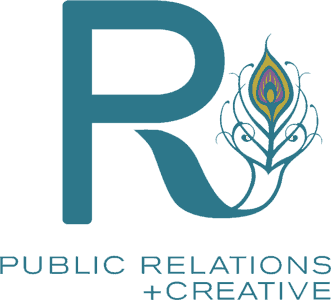Public Relations
10 Must-Read PR Books for Every Business Professional
Diving into the deep end can be scary when you are new to the world of public relations. Also, staying up-to-date as things change and evolve is essential to achieve your goals. Reading some books about PR increases your chances of having better strategic planning for public relations. Some books reveal the fundamentals and evolving tactics of PR. If you want to discover what the industry entails, consider the following ten must-read books on public relations.
Books About PR You Need to Read
Here are our top ten PR books for business owners.
1. “Spin Sucks: Communication and Reputation Management in the Digital Age” by Gini Dietrich

Gini Dietrich is a rockstar in public relations, thanks to her popular blog and cutting-edge insights. And lucky for you, she's compiled all of her expertise into one must-read book! In "Spin Sucks," she goes beyond just communication tips to provide a comprehensive guide to reputation management in the digital age. This book provides insights into the latest tools and techniques for managing your organization's online reputation, including how to deal with negative reviews and social media crises. One of the most valuable lessons from the book is the importance of transparency and authenticity in building trust with your audience. Dietrich emphasizes the power of communicating openly and honestly, helping you establish your organization as a trustworthy and credible source of information.
2. “The New Rules of Marketing and PR” by David Meerman Scott

In this book, David Meerman verifies the importance of digital and web-based marketing for PR. Through online connections, organizations can reach their target audience. The book will teach you how to build long-lasting relationships with customers and clients.
3. “The PR Practitioner’s Playbook” by Don Bartholomew

The author shares theories that are woven into numerous proven techniques, tips, tactics, tools, and strategies that will help inexperienced and experienced PR industry practitioners. Bartholomew’s insight is helpful for all public relations professionals in advertising, marketing, social media, and other areas of digital media, strategic planning, and campaigns.
4. “This Is How You Pitch: How to Kiss Ass in Your First Year of PR” by Ed Zitron

This book will teach you all you need to know about public relations. You get to learn about the essential business skill of pitching. Drawing from his experiences in the industry, Zitron delivers practical advice on crafting compelling pitches that will catch the attention of journalists and influencers. The author also dives deep into the culture and expectations of the industry, sharing insights on handling demanding clients and navigating challenging situations with ease. From crafting a compelling story to understanding the needs and preferences of your audience, "This Is How You Pitch" covers everything you need to know to succeed in public relations.
5. “Public Relations, Branding, and Authenticity: Brand Communications in the Digital Age” by Sian Rees

The author explores the importance of authentic communications in your PR and branding role with case studies on the public relations activity of successful brands and interviews with those in crises. “Public Relations, Branding, and Authenticity” is aimed at public relations academicians and practitioners interested in theory development and is also helpful for scholars in corporate communications and brands.
6. “A Modern Guide to Public Relations: Unveiling the Mystery of PR Including Content Marketing, SEO, Social Media & PR Best Practices” by Amy Rosenberg

Do you need help getting started in PR? The book contains everything you need to know about launching a PR career or adding a new skill. Learn how to create a good work relationship with bloggers, podcasts, influencers, and traditional media. “A Modern Guide to Public Relations” covers new approaches to PR, such as SEO, content, and social PR as well.
7. “Public Relations Campaigns: An Integrated Approach Second Edition” by Regina M. Luttrell

Get hands-on instruction on how to create successful and integrated PR campaigns in this book. Two models are discussed: ROSTIR (Research/diagnosis, objectives, strategy, tactics, implementation, and reporting/evaluation) and PESO (paid, earned shared/social, and owned media). You’ll learn the framework for effective planning and using all available resources to create winning PR campaigns.
8. “Strategic Planning for Public Relations” by Ronald D. Smith

The author helps you develop a PR plan by identifying objectives and strategies brands can use to promote a brand. As well as how to manage bad publicity. The book also talks about the different ways you can communicate with media channels. Such as Ethos (character), Pathos (emotions), and logos (logic).
9. “Trust Me; I’m Lying: Confessions of a Media Manipulator” by Ryan Holiday

This book is sarcastic, witty, fun, and informative. It exposes you to the media industry and conglomerates that hold power. It’s an excellent resource to help improve your PR career. Also, you get to peek behind the curtains and learn from the tactics and mistakes made in the sector. Through his experiences as a media manipulator, Holiday reveals the tactics used by those in power to control the narrative and generate clicks and traffic. He shows how easy it is to manipulate the media and how this can significantly impact public opinion. One of the key takeaways from the book is the importance of transparency and authenticity in your communications. By being honest and open with your audience, you can build trust and credibility. Thus, it can help mitigate the impact of any negative publicity.
10. “Crisis Communications: The Definitive Guide to Managing the Message" by Steven Fink

This comprehensive guide to managing communications during a crisis includes strategies for preparing for potential crises, managing the flow of information, and addressing stakeholder concerns. You'll learn about the different types of crises, how to tailor your response accordingly. As well as how to work with the media and other stakeholders to manage the narrative. The book is filled with real-world examples of businesses that have faced crises and how they managed their communications, so you can see what works and what doesn't.
Which PR Books Are Best for Me?
Finding the best PR books to guide you through the rapidly changing industry can be overwhelming. Even though we have not exhausted the number of books, the ones listed in this article will help you explore key aspects of the industry.
Need more guidance on PR and how to use it effectively? Schedule a free consultation. We are here for you.
Top 6 Unconventional PR Opportunities and How To Use Them
If you're a business owner, you have likely come across the adage, "no publicity is bad publicity." While the veracity of this statement is debatable, an opportunity to create a buzz around your business and brand is an ongoing effort. Many brands already know how impactful standard PR outreach can be in building brand awareness and establishing credibility, but only a few know how to leverage unorthodox PR tactics. In this post, we explore six top PR opportunities for business owners and how you can use them to build brand awareness.
Top 6 PR Opportunities Business Owners Often Miss Out On
Here are the top six PR opportunities business owners usually miss out on.
1. Guerrilla Marketing
Guerrilla marketing generates publicity. It drives brand awareness using unconventional marketing tactics that grab public attention using creative means such as street art, pop-up installations, or flash mobs. Guerrilla marketing creates shock, curiosity, or surprise, and as a brand, you can leverage this to create awareness for your brand. Spotify and Bounty are examples of brands that use guerrilla marketing as a PR opportunity.

In January 2019, Spotify partnered with Chani Nicholas, a U.S. astrologer, to create a Cosmic Playlist for its listener. Bounty's installation of life-sized "messes," such as melting popsicles and knocked-over coffee cups across New York, generated more attention than having the same message on billboards.
2. Experiential Marketing
You can tell the public about your product, but a better way to create awareness is to show them instead. Allowing prospective and existing customers to experience your product first-hand creates an immersive and engaging experience. If executed well, many will be extra motivated to share the experience with their friends, family, and social media followers. However, you must be creative with your approach, conduct thorough planning, and execute it seamlessly, as experiential marketing for PR opportunities can be resource intensive. For experiential marketing to be a successful PR tactic, you must portray your audience as the characters in the story of your brand experience.

For instance, with the "The Queen's Ball: A Bridgerton Experience," Netflix commemorated the second season of Shonda Rhimes' popular TV series by launching theatrical pop-up events in various cities. Branded as "an exclusive night of music and dance," the event invited fans to dress up in 19th-century costumes, revel in a string quartet's rendition of contemporary music, and even get an audience with a queen seated on a plush sofa.
3. Employee Advocacy
If you have a positive relationship with your employees, they can serve as a natural voice for your brand. Many employees have massive following across various social media, and they can help build relationships with your current customers and reach prospective ones to drive organic visibility. Employee advocacy and PR are more intertwined today than before. According to Hootsuite, as a business owner, you can expand your organic reach by 200% and elevate profitability by 23% with a formal employee advocacy program. Unfortunately, many employers miss out on this PR opportunity because they feel they're controlling their staff by telling them to advocate for their brands. However, that is not true. If well motivated, your employees can be key in reaping PR benefits.
4. Cause-Related Marketing

Everybody likes to align with a cause, and finding one that puts your brand in the good book of the public is a smart PR opportunity many organizations underutilize. Whatever brand story you tell must evoke strong emotions that drive your target customers' engagement. An example of a company leveraging cause marketing as a PR opportunity is BoxLunch. For every $10 their customers spend, the company donates a meal to the needy through the Feeding America initiative. Knowing they are part of a cause they believe in can endear your brand more to your customers.
5. Podcast Appearance

Appearing on podcasts is one of the most underutilized PR opportunities. There are many popular podcasts out there in need of speakers. You can reach out to podcast show hosts and let them know your interest and availability. While you may not be attending the show to promote your brand directly. Your eloquence, credibility, and mode of delivery can attract listeners to look you and your brand up. Additionally, you can request the host to include your brand details in the podcast description, to drive visibility. However, you must conduct comprehensive customer research to identify which podcasts your target audiences enjoy.
6. Thought Leadership
Have you ever changed your opinion about a particular brand after reading its thought leadership content? Usually, branding is all about perception, and public opinion of you can affect customer decisions. A B2B Thought Leadership Impact report showed 65% of respondents agreed that a piece of thought leadership massively influenced their perception of a company for the better. In addition, 64% said thought leadership is a more reliable means of assessing a vendor’s competencies and capabilities than marketing materials and product sheets. While thought leadership content is not new, especially in B2B marketing, only a few brands leverage it as a PR opportunity. You can share your knowledge, expertise, and perspectives (often controversial) to build credibility and establish brand authority.
How To Get Started With Unconventional PR Opportunities
It often takes thinking outside the box to deliver an effective PR campaign. If you’re struggling to decide the best PR opportunities for your brand or unsure how to execute your PR campaign to generate the right result, know that we are always here to help. Contact us to schedule a free discovery call.
6 Proven PR Tips for Effective Public Relations Management
Public relations (PR) can be a tricky road to navigate. You are trying to put the word out in the market for your company, product, or service but also want to ensure you’re presenting your brand in the best light. Fortunately, by following these six PR tips we have curated, you can avoid making costly PR mistakes and instead build relationships and connections that will help your brand grow.
1. Create an Effective Strategy

To drive a successful public relations campaign, the first thing to put on the table is a rock-solid strategy. You can't manage public relations without this being well-defined. Your strategy should include a list of key messages, objectives, goals, and approaches based on the following.
- Know Your Audience: Not understanding who you serve and engage with can impede success. It is important to know who you want to reach out to, how you want to reach them, and why they should care about your business. The more specific your strategy is the better your chance of succeeding at PR.
- Know Your Approach: It is essential to be able to connect with your audience in a way that makes sense to them and in a manner that they find engaging. Furthermore, there are different approaches to different situations. For example, sending out a press release may work well when announcing an upcoming product launch. However, an interview request from the media could be more effective if it illustrates how the company is expanding its staff and resources.
- Develop a Crisis Management Strategy: A crisis management plan will help you avoid potential disasters before they happen. Furthermore, it will ensure you're prepared should situations go awry. You'll want to include an exhaustive directory containing contacts from all your agencies, a list of employees representing the company, and sample message responses to different situations. It’s all part of a well-defined public relations strategy. Learn more about PR for crisis management.
2. Cultivate Positive Relationships with the Media/Press

The media/press is a vehicle for all things news in our society; they can make and break any individual or organization, so you always want to be in their good books and maintain a positive relationship with them.
A mutual relationship with the media and press can help you increase brand visibility and build trust with your company’s public.
Here are some tips to help you manage your relationships with the media/press:
- Be available and responsive to their requests for interviews and other media requests.
- Don't be defensive when asked about your company's policies, practices, or requests that may seem uncomfortable or intrusive; just answer honestly and directly.
- Get involved in local events and community outreach efforts. You can also set up meetings with reporters at conferences and trade shows; it will allow you to talk about new trends in your industry or what's coming up next year.
3. Capture and Engage on Social Media

According to Jamie Johnson, contributor for the U.S. Chamber of Commerce, social media and public relations can no longer be considered mutually exclusive; they are now inextricably linked.
Social media is a powerful tool that has proven to help businesses and brands reach clients and potential customers from all over the world. It’s an easy and inexpensive medium to connect and relate with customers and potential clients, be sure to leverage the tool next time you try to put a word out.
4. Review your competition

Your competitors' actions, whether good or bad, can provide insights on how to improve your company's public relations strategy. Studying your competitors for PR can help you incorporate new concepts into your PR strategy, which can, in turn, help your brand get ahead of its competition. See your competitors as a resource and checklist on what you should and should not be doing in your business.
It is significant to note that you don’t have to change your brand to match your competitors; embrace your differences to foster a healthy competitive edge and a sense of identity.
5. Use Data Wisely
Data is an extremely valuable resource for forecasting and preparing for the future. It is the fuel that powers your PR strategy. It helps you understand your audience, measure results, and identify new opportunities for growth.
6. Never Confuse PR with Advertising
Public relations, advertising, and marketing may exist in the same universe but are not the same at all. As you know, public relations is all about reputation management, media relations, and event publicity. While advertising and marketing focus solely on selling products and services.
When managing PR, it's important to get this right and avoid talking too much about your products or services. Instead, talk about your company as a whole and the value you can bring to customers.
Next Steps for Managing Public Relations
These PR tips will guide you on how best to approach your brand’s PR. As well as, how you want to position yourself in the market. But if things get overwhelming along the way, be sure to always count on RPR firm.
Our team of experts has the experience to work with you every step of the way to ensure you have a tailored solution specific to your needs. At RPR, we have all the support and services your business needs to succeed. Schedule a free consultation with us today!
7 Successful PR Tactics
Companies that focus on creating strong public relations (PR) throughout every stage of their business are often the most successful. While there is no specific template for successful PR, there are tips you can implement to ensure you are on the right path. Here we’ll go through some of those PR tactics that business owners, creative agencies, and PR professionals should try.
1. Identify Your Target Audience

An essential step in every PR strategy is taking the time to get to know your audience. Who are your customers? What are their needs? How can you reach them? Understanding your customers will help you know how to tailor your message to speak directly to them. For instance, if your primary target audience is young people, it’s best to craft messages that will appeal to their generation. Some basic information you should consider to understand your target audience includes the following.
- Demography (i.e., age, gender)
- Location
- Education/Employment/Career/Income level.
2. Set Specific Goals
Another successful PR tactic is to have a goal in mind. Setting goals for your campaigns will help you stay focused. For example, do you want to increase brand awareness, introduce a product line, attract new customers, or manage a crisis? Highlight what you want to achieve with your campaign and set goals that are SMART (Specific, Measurable, Attainable, Realistic, and Timely).
A great way to set goals is by reviewing your previous PR campaigns and considering what you would like to improve to get better results and/or what hit the mark so you can continue to implement going forward.
3. Create Great Content Marketing

Content is a huge part of every PR campaign, so you must focus on creating messaging that is not only relevant to your target customer but also engaging enough to catch their attention and keep it. Also, the best PR tactics involve storytelling, so ensure your brand message tells a unique and original story as well. Whether it’s a social media campaign, a news release, or a radio ad, you should find a way to incorporate storytelling to take your content to the next level.
4. Have a Call-to-Action
One thing that the most successful PR campaigns have in common is a call to action (CTA). A CTA on your PR content will guide your audience to take specific action to help you achieve your goals. It’s such a simple PR tactic, but you’d be surprised how many campaigns fall short because the audience doesn’t know what to do next!
5. Choose The Right Platform
Once you have great content to catch your audience's attention, ensure you disseminate your message through the platforms on which your customers spend their time. Digital advertising is one of the best media for PR messages at the moment because it tends to reach your audience faster. According to a study on internet usage, about 81% of Americans head to the internet at least once a day.
For this reason, any brand serious about successful PR tactics must take advantage of social media and online platforms. Set up social media accounts, maintain a strong presence, engage with your audience, and share valuable content with your customers.
6. Partner With Influencers

Influencer marketing is currently one of the most effective PR tactics to grow customers and gain trust. A study shows that 51% of companies get better results through influencer marketing. Also, the majority of people are likely to trust recommendations that come from other people as opposed to the brand itself. So, seek out thought leaders, bloggers, and other influential personalities in your niche or with values that align with your brand. Establish a relationship with them and get them to endorse or promote your brand to the public.
7. Measure The Results
Measuring the results of your campaigns is often overlooked when discussing PR tactics and strategies. However, it is a great tip to ensure successful PR. When you track engagements, analyze your campaigns, and measure your result, you can figure out what worked well and what to improve. You can then use the results to guide your future PR campaigns and efforts.
Need Help Creating Successful PR Tactics for Your Brand?
Many brands are competing to get their customer’s attention, and the best way to make your company stand out is by working with experienced PR professionals. At RPR Firm, we have a team of PR professionals with the skills and experience to help you develop successful PR campaigns. Our company has more than 11 years of experience helping brands improve their reputation and maximize their revenue through PR.
Are you considering working with a full-service PR team, or do you want to chat with PR professionals for your campaign? Schedule a free consultation with us today.
5 Ways Public Relations Influences Public Opinion
Every company cares about public perception, and the good news is that public relations (PR) is one way they can create a likable brand and shape public opinion. Newspaper, television, social media, blogs, and other forms of PR are significant in shaping people’s attitudes and behavior. In this article, we go through how public relations influences public opinion.
Defining Public Relations
Companies use public relations to connect to their target audience and consumers. The trick to PR is to improve your relationship with consumers so that they understand you and positively perceive your brand/product. PR is also useful to promote your company’s values, show customers you care about them, and control damage in a crisis.
Defining Public Opinion

The definition of public opinion, in general, is that it is what the public thinks about a person, situation, phenomenon, product, or in this case, a company. According to Wikipedia, public opinion is the collective views of people in a society on a particular topic.
So, what is the relationship between public relations and public opinion?
All the processes involved in public relations focus on impacting public opinion. PR, unlike marketing, isn't about selling products. Instead, it focuses on managing a company’s reputation and maintaining positive relations with anyone interested in your brand. In other words, a lot of PR tasks involve modifying people’s opinions so that they take specific actions, like buying your product. PR sells your company by strategically shaping perceptions.
How Companies Use PR to Influence Public Opinion
Here are some of the top public relations techniques companies use to shape public opinion:
1. Understanding Your Target Audience
PR professionals need to get into the minds of their customers, identify their demography, understand their pain points, and find out what they are looking for in a product or service. This information can help companies craft targeted PR messages, releases, and copy in which customers can relate. If you understand your audience, you can tailor your PR activities to their needs, and they will have positive feelings about your brand, leading to improved public opinion.
2. Repeated Exposure
One of the ways public relations can shape public opinions is through repeated exposure to your brand and messages. You can use different ways and platforms like news websites, paid search, social media, or even influencer marketing. The more people see your PR messages, the more likely you are to influence their opinions about your brand.
Another way that PR influences public opinion depends on where the messaging is featured. Companies need to feature their PR messages on platforms that their audience uses the most. The kind of places your brand messaging appears can influence people’s perception and create the desired outcome you want, so make sure to do your research there..
3. Great Messaging
Good PR is mostly about clear communication and great messaging. In this case, PR messaging that is clear, concise, and persuasive can speak to people’s emotions and impact their opinions about your brand. As such, it’s imperative for companies to focus on the language, tone, and information used to disseminate information to their audience. Whether you are trying to manage a crisis or want to create positive news coverage about your brand, you can get public opinion in your favor by presenting your company in a positive light that will build trust with the public.
4. Third-Party Endorsement
One of the best ways to influence public opinion through PR is by getting credible third-party endorsements from news media, celebrities, journalists, social media influencers, or opinion leaders, for example. Third-party endorsements make PR feel more genuine and authentic and, as such, are likely to build a great brand image that influences people positively.
The credibility that comes with third-party endorsements is why many companies spend tons of money to have people who share the same values and vision as their brand ambassadors. Having someone as the face of your brand can create a positive reputation for your company and influence people.
5. Putting In The Work
Influencing public opinion isn't just about talking but also walking the walk. People like companies that act responsibly and put in the work that matches their statements and press releases. For this reason, it’s best to focus on creating a solid mission statement. Ultimately, people (and companies) are defined by what they do and not just what they say.
Get Started Using Public Relations to Influence Public Opinion of Your Brand

Having a good PR agency by your side is the best way to connect with your audience and maintain positive public opinion about your brand. At RPR Firm, we have PR professional teams with years of experience helping brands stand out in the competitive market.
Schedule a free consultation with us today and let our team of experts improve your brand reputation through great public relations.
4 Good PR Tactics to Try in 2023
In 2023, delivering excellent results to your clients will only be possible if you know what is happening in public relations (PR), understand the latest trends, and have effective PR strategies in place. In today's digital world, PR tactics have become more important than ever to create a positive public image. As well as increase brand awareness, and build trust with your target audience. This article will look at four good PR tactics you should try in 2023.
Good PR Tactics
Below are some of the most effective and reliable PR tactics to try in 2023.
1. Develop a Thought Leadership Strategy

Thought leadership is a good PR tactic you should try in 2023. Why? It can help you establish yourself or your brand as an industry expert and build credibility and trust with your target audience.
By showcasing your industry knowledge, experience, and insight, you can differentiate your brand from your competitors and help you gain a competitive edge.
To use thought leadership as a good PR tactic, you must create high-quality content that provides value to your audience. So, first, identify the topics your target audience is interested in and create content addressing their pain points, challenges, and questions. What’s more, that content doesn’t just have to be in written form; you could speak at industry conferences, host webinars, create podcasts, and more if you have someone on your leadership team who excels in public speaking.
2. Create Authentic Content

If there is one effective strategy that is common to every business, it is content creation. However, this strategy must be emphasized more because authentic content is one of the best ways to attract people to a brand or company.
Today, many AI tools can help create or heavily influence good content creation and consumption. However, AI lacks feelings and the connections and personalization only humans can create. Therefore, any brand or company that delivers the most authentic, unique, and compelling content will likely get a boost in its business.
Other effective content-creating strategies include the following:
Use of Interactive Content
One of the criteria for good content is the level of interaction it allows. Interactive content is the future, and it changes the PR landscape. Interactive content is different from written content, as it allows your audience to engage by clicking, liking, leaving a comment, or doing other actions. Examples of interactive content include quizzes, polls, etc.
Simplified Messages
Nowadays, people's attention span isn't as long as it used to be, and when it comes to content, lengthy copy doesn't work as well anymore. Instead, people want to read, watch, or listen to short, captivating, straight-to-the-point, and punchy content. As a result, make it a priority to create concise content, but ensure it does not lose its value.
3. Leverage the Power of Influencer Marketing
Influencer marketing has emerged as one of the most effective PR tactics in recent years. It involves partnering with social media influencers and celebrities who have a good number of followers and high engagement rates with your brand values and messaging to promote your brand or product.
Generally, influencers are some of the most active content producers and have the ability to boost various content. Another benefit of influencer marketing is that it can help you generate user-generated content (UGC), which is highly valuable for PR purposes. By collaborating with influencers, you can encourage their followers to create UGC around your brand, which can be repurposed for your own PR efforts.
4. Stay Active on Social Media

Social media is a powerful tool, making it one of the best PR tactics. In fact, according to Statista, over 50% of the world's population uses one or more of the most popular social media platforms. As a result, any brand or business that is serious about its PR tactics must take advantage of social media. It’s perfect for two-way communication with your target audience!
Social media will continue to dominate throughout 2023. It is one of the best places to widely distribute your message, avoid possible PR catastrophes, and improve brand awareness. As a result, it is essential to be involved and active in social platforms relevant to your target audience and find out how to implement this tactic into your overall PR strategy.
So, it is time to up the ante if you have a social media account or are on various social media platforms. And don’t forget to use social media metrics to track your results.
Getting Started with Good PR Tactics
PR tactics are all about using the right approach. Therefore, if you are new to running public relations campaigns or need further assistance to get started, we recommend that you consider hiring the services of a professional PR firm for good PR tactics that will earn positive results for your brand.
9 Tips for Successful PR Campaign in 2023
Achieving a successful PR campaign can be challenging, even for the most experienced brands. The online space changes fast, and getting your audience's attention has never been so difficult. This article reviews nine tested and trusted tips for a successful PR campaign.
What is a PR Campaign?

A PR campaign is a series of perfectly planned and well-executed activities organized to give a brand or company publicity to reach the right audiences. A PR campaign is primarily designed to boost a brand’s or an organization’s reputation online and offline.
Tips for an Effective PR campaign
Achieving a successful PR campaign goes beyond just writing and distributing a press release through media platforms. It requires thoughtfully planned and well-executed PR strategies. Here are nine tips to make your PR campaign successful:
1. Be SMART In Defining Campaign Goals and Objectives
Telling you to set a goal is not necessarily helpful. However, how SMART is your goal? Is it Specific, Measurable, Achievable, Realistic, and Time-bound? Once you have chosen a big goal, you need to narrow it down to be as specific as possible. For example, “we want to drive massive traffic” is not smart enough. How many weekly or monthly visitors would you like to add after your campaign? What CTR and sales conversions do you want to achieve? Some examples of successful real-life campaigns in 2022 include LEGO's MRI PR Campaign, AirbnB.org for Ukraine Campaign, and Coinbase Super Bowl QR Code.
2. Segment your Target Audience
Simply knowing your target audience is insufficient; you must break them into different customer segments. This can be based on demographics, psychographics, and buyer’s personas. For instance, if you have innovative products with each appealing to different age groups, you might want your campaign to focus on Gen Z if they have the largest share of your target market rather than targeting everyone at a time.
3. Identify your Ideal PR Campaign Company
Hundreds of PR companies are available to choose from, but not all fit your campaign objectives. You need to review the company's processes, check its portfolio, and vet their team to ensure it can deliver a successful PR campaign. PR Companies with a long history of delivering quality with happy customer testimonials to back it up are your best bet. For instance, we have over 12 years of executing successful PR campaigns with over 100 happy brands.
4. Determine your PR Campaign Budget and Allocate Resources

How much does a digital PR cost in 2023? Well, the budget varies depending on your preferred type of campaign—outreach versus full service, your audience size, and the scope of service. A digital PR campaign with a monthly retainer can range between $5000 to $50,000.
5. Craft Strong and Tailored Messages
The success of your campaign largely depends on the uniqueness of your message and the angle through which you execute it. Most successful PR campaigns are those with creative angles and unique storytelling. You must put yourself in the shoes of your target audience. Why should they spend their busy time reading about your brand-new product launch? Why should they care? Does your message resonate with them? Can your story grab their attention? If your answer is no, you might have to rethink.
6. Use the Most Effective PR Tactics
PR tactics are specific methods and techniques to support your PR campaign's messages and goals. You have many options available to you, but the ones we have tested and proven to be highly effective are media relations, content marketing, social media campaigns, and events. Also, don’t rely on a single campaign tactic to generate the best result. All these work in synergy to attract your audience's attention and build a brand reputation.
7. Set Measurable Goals and KPIs to Track Campaigns Success
You can’t have a successful PR campaign if you don’t have key performance indicators (KPIs) to track your goals. However, you must focus on KPIs that align with your goals and are quantifiable. For instance, if your goal is to boost your brand’s visibility, you might want to track the number of website visits, page views, bounces, and retention rate, and social media mentions.
8. Evaluate your PR Campaign
After generating the KPI report; you must evaluate your PR campaign to identify what worked and what you can improve. According to Buffer, 82% of PR professionals are clueless about evaluating their PR campaigns' ROI. You need to assign a monetary value to each tactic deployed and use data to evaluate its performance.
9. Adjust and Relaunch Based On Feedback and Available Data

You must be flexible when it comes to achieving a successful PR campaign. There are instances when you might need to redefine your goal and change your PR tactics or strategies based on the feedback you receive. Things change pretty fast in the digital world, so you must keep monitoring your campaigns (it’s not just a one-time effort!) to see if you need to modify your strategies. Also, document your learning and use the new knowledge to craft better campaigns going forward.
Hire a PR Campaign Expert
It’s much easier to run a successful PR campaign with the input of PR professionals with experienced teams and proven portfolios. At RPR Firm, we eliminate guesswork from public relations through result-driven campaign development strategies and tactics.
Our team boasts professional relationships with leading media, influencers, and marketing professionals. With over 11 years of helping brands boost their reputation and maximizing revenue through PR, rest assured you are in safe hands with us. Schedule a free consultation, and let's help build your brand reputation today!
Role of New Technologies in PR in 2023
Public relations (PR) is an incredibly fast-transforming industry heavily influenced by new technologies and trends. Over the last several years, we’ve seen the industry change drastically thanks to the emergence of increased social media opportunities, new artificial intelligence (AI) technology, and improved communication platforms.
In 2023, we expect to see even more changes in the PR technological space. Read on to learn more about the technologies in PR that we think will make the biggest impact in the coming year.
1. Affiliate Links & Online Shopping

Online shopping provides a wide range of growth options for businesses large, and small—and the sector is only getting bigger. PR teams would be wise to hop on new online shopping platforms, like Shopify, as soon as possible.
Shopify is just one example of how the new “click-through-to-purchase” features allow users to shop at the click of literally one button, making it easier than ever to capture new customers. Amazon storefronts are another great way to take advantage of more advanced online shopping technology. PR teams should spend time curating their pages on each online shopping app and make sure it is easy to use, features high-quality images, is highly descriptive, and is optimized for whatever product marketing campaigns are currently running.
Affiliate marketing will also continue to grow in 2023. Brands and influencers can refer audiences to products or services by sharing links on blogs, social media platforms, podcasts, or on their websites. Then, the brand or influencer receives a small commission when a sale is made using their affiliate link. This is a highly scalable technology that can be used to bring in passive income for all types of brands and creators in the coming year.
2. Technology for Creators

It’s time to rethink the “influencer.” Ultra-popular creators like Alix Earle are taking over the social media landscape with their relatable content and personas. PR teams can expect astronomical collaboration prices and more authentic branded content from the highest tier of influencers. Of course, this type of polished, professional content is dependent on cutting-edge social media and video editing technology. Expect to see more video editing and photo editing apps, improved photography and videography technology, and more sophisticated content creation in the coming year.
3. Enhanced Customization
Targeting technology continues to become more and more sophisticated, and this trend will likely continue in 2023. Audiences expect high levels of customization from all sorts of digital marketing and PR, from the social media posts that are suggested to them to the ads they view. Public relations campaigns are no exception to this rule.
PR professionals can use new and improved media targeting technologies to build stronger, more authentic connections with publications and writers. This will be a more effective strategy than mass pitching, and it will also lead to better coverage for clients; quality over quantity is key in the PR landscape. PR teams should also expect to employ AI and other new technologies to do better media and pitching research on the front end of campaigns.
4. Artificial Intelligence

You might be sick of hearing about AI, and who could blame you? AI seems to be everywhere these days, and it doesn’t look like it’s going away any time soon. PR professionals would be smart to adopt this technology for as many clients as they can, as soon as possible.
AI technologies in PR have become fairly commonplace, but industry professionals can expect to see them expand more in 2023. For example, automated emails using triggers from actions taken on a website already help with nurturing customers down the marketing funnel. Chatbots are also an oft-used form of AI that makes PR teams’ lives easier.
But professionals can expect to see these same technologies in PR applied to other areas of the industry, like in feet-on-the-street campaigns and at in-person events and trade shows. Pay close attention to Fortune 500 corporations who will likely be on the cutting edge of investing more AI technology into their PR campaigns this year.
What is the best way to stay on top of new technologies in PR?
Our team recommends reading newsletters like Raisin Bread from Marketerhire, Sprout Social’s newsletter, or Marketing Brew to stay on top of trends and new technologies in the larger PR and marketing landscape. You can also follow trend and tech accounts on social media platforms like Instagram and TikTok. Later does a great job of showcasing trends in social media and digital marketing. You can also read blogs like Really Good Emails. These, of course, are just a few places you can get your PR and marketing technology news—find the platforms you like the most and stick with them!
If you are too busy to keep up with the trends yourself, consider hiring a PR firm. PR teams specialize in keeping up with new technologies and trends, and your team will be able to make recommendations to you about which technologies to adopt and which to hold off on for the time being. Contact our team today to chat all things PR and explore what a partnership might look like for you!
Is a Public Relations Specialist Different From a Journalist?
Is a public relations (PR) specialist different from a journalist? The short answer is yes! Although there are many similarities between the two professions, they have distinct functions in both the marketing sphere as well as in their relationships with brands and the community.
Keep reading for our full breakdown of the differences between the two career paths—and why you might choose one over the other.
1. Amount of Responsibilities

At publications, journalists on staff typically focus on one main role. Editors will work with journalists to improve the strength of their writing, while journalists will focus on writing compelling stories for their beat. There is very little overlap between the two. The newsroom functions smoothly because each person within it has a defined job function that complements the others’ work perfectly.
Meanwhile, in the world of public relations, Public relation specialist will often wear multiple hats for each of their clients. They might write, edit, host in-person events, manage social media communities, and send marketing emails—sometimes all within the same day! There’s less of an opportunity to focus on one task or become an expert in any area, but the fast pace and daily variations for PR pros can be thrilling.
2. Different Audiences
When journalists write stories, they are always addressing the general public. Even journalists who cover niche beats, like car racing or local politics, write to address general audiences.
In PR writing, however, specialists write to address specific audiences that care about the brand’s messages. This can mean people who’ve selected to “follow” a brand on social media, employees, company stakeholders, or email subscribers. No matter who they are, at some point they opted into hearing from the brand, and they have invested in the brand’s story in some way. Because of this, PR writing tends to be a bit more targeted in content and tone, and it can also be a little more creative and whimsical in nature. PR writers might adjust for a variety of demographics, including age, region, gender, or relationship to the brand.
3. Differences in Tone

As mentioned above, journalists need to write stories that address large swaths of audiences and that approach news in an unbiased, factual manner. That means journalists typically need to follow a strict code of ethics in their writing. They also need to take a wholly objective approach to their stories. Tweaking a quote or message to fit better with the story is not acceptable and can destroy the public’s trust in that journalist and publication.
Meanwhile, public relations specialists get to let their creative flags fly when it comes to writing. PR teams select messaging, verbiage, tone, and mediums that best represent their clients and the stories they want to share—even if their claims are a bit biased or out there. PR specialists also don’t have to worry about including all the facts as a journalist does—they can pick and choose the messaging that fits the campaign best, whatever it may be. Molding a favorable narrative around a client, especially a company with a bad reputation, is hard work that requires lots of creative thinking and problem-solving in the writing space.
4. Main Goals

The ultimate goal of journalism is to share messages, information, and stories that the journalist believes would be interesting or helpful for their communities. Those messages might be positive (i.e., “Dog Saves Man From Burning Building”) or negative (i.e., “Company X Declares Bankruptcy”). But no matter what they cover, the journalist believes the details included within are important for the general public to know.
Public relations goals are more widespread and varied. Of course, public relations specialists want to share important information and messaging, but they also aim to create goodwill in the community, build consumer confidence, and craft a positive public perception of clients. That requires a level of bias that journalists simply can’t adopt. Because PR teams have a stake in a business’s health and revenue, harmonious relationships are at the forefront of every PR pro’s mind at all times.
How should I choose whether to become a journalist or a public relations specialist?
Recent graduates and others looking to make career changes should consider both options carefully and consider each role's pros and cons. Do you prefer to tell unbiased stories or craft careful messaging? Do you like learning about many different topics or specialize in just a few? And do you like to build lots of relationships or focus on a few important ones? Journalism careers allow individuals to share important stories with the community, build a vast network, and write about many topics each week. Meanwhile, public relations specialists have the opportunity to control their own narratives, and they pride themselves on specializing in certain topics and curating strong relationships with fewer people. Ultimately, you should make your choice based on which sounds more appealing and which role matches best with your current skill set.
Want to chat with a team of PR professionals about their careers and lives in the fast-paced industry? Contact us to schedule an informational interview today!
Role of PR in Crisis Management
When you think about public relations (PR), most people picture businesses sharing news and trying to get positive press mentions to increase brand awareness and credibility. Yes, PR does those things, but there’s an important flip side to it as well. You see, PR doesn’t just help businesses promote the good; it also helps you to overcome negative publicity. As such, PR has an integral role in crisis management. Here’s how it can help your brand in a crisis.
What is Crisis Management?

By definition, a crisis is a time of intense difficulty, trouble, or danger. But in the business world, a crisis is really any unanticipated event that could disrupt your operations and/or cause potential harm to your brand reputation, including:
- Product recalls
- Customer injuries
- Employee misconduct
- Security breaches
- Natural disasters
In turn, crisis management is the art of not only responding effectively to events that have occurred but also being proactive in anticipating crises so that your business is prepared.
How PR Can Help with Crisis Management

The goal of public relations is to influence, engage, and build a positive relationship and/or image with your target audience, which is why PR tactics are so ideal for helping brands in a crisis. The role of PR in crisis management gives brands the following.
1. Peace of mind
When a crisis hits, panic typically follows, and that’s when mistakes happen. For most businesses, crisis management isn’t something you or your team deal with every day. So it’s natural to be overwhelmed and unsure of what to do. A PR specialist can take that worry off your shoulders by acting swiftly and surely on your behalf to protect your brand in the public eye.
2. Freedom to focus on the crisis
There’s much more to worry about in a crisis than public relations alone. Having to split your focus between what to say in public, to your customers, and to your employees while also working on the logistics needed to resolve the crisis itself leaves you pulled in so many directions that you and/or your team may not be as effective as you could be. With a PR specialist handling the media and your message to each audience, you’re free to focus on the aspects of the crisis in which you’re needed most.
3. More control of the narrative
When it comes to crisis management, speed is everything. Especially how fast you communicate about the crisis. It’s much harder to change public perception once the crisis is already being talked about in the news and/or on social media than to drive the message from your point of view. During the time it takes you and your team to decide whom to contact and what to say, the narrative can quickly spin out of your control.
The key is getting the right message to the right people right away. A PR specialist can help you do just that because they already have the processes and the connections in place.
4. Ability to present your brand in the best light
Most of the time, how you say something is just as important as what you say. If you’re not used to speaking with the media or on video, you could inadvertently come across in a way that does more harm than good during a crisis. PR specialists have the training and finesse to help you get your message across in a way that puts your brand in the best light. It’s imperative that everyone representing the brand about the crisis is authentic, honest, and transparent in their words and their body language.
5. An even better reputation
When done right, crisis management may potentially improve your reputation over the long run. Of course, it depends on the crisis at hand, but businesses that are authentic, honest, and open the lines of communication through effective PR have often been the ones who have thrived despite the circumstances.
6. The means to monitor the situation
As the crisis evolves, so will public sentiment, which means you need to keep a pulse on national and local news outlets and what your customers are saying on social media. Again, if this isn’t something you deal will every day, you may not have the means or the time to stay on top of this effectively. Not to mention knowing when to respond and how. But your PR specialist will!
They’ll also be able to track your campaigns carefully as well. If your crisis communication approach is working, great! If it’s not, they’ll help you reassess to see how you might tweak to improve communications going forward.
Next Steps for Crisis Management

The adage, “the best defense is a good offense,” certainly applies when it comes to crisis management because the reality is that you’ll be best prepared to respond to a crisis if you proactively plan for one.
A PR specialist can help create a plan that identifies where your brand might be vulnerable, develops messaging for potential scenarios, and appoints those who will speak on the brand’s behalf. They can also help with media training. But, most importantly, keep in mind that one crisis does not have to define your brand, and with effective crisis management, it won’t. So, to get started, contact us to schedule a call today!










